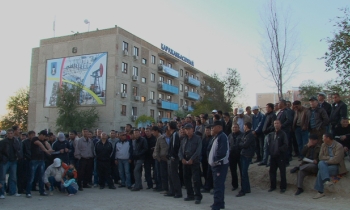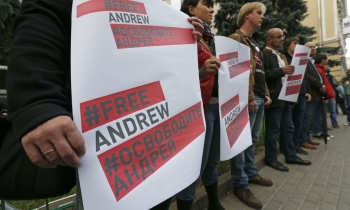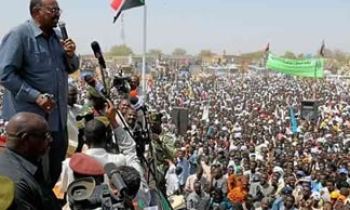Alfrets Mirulewan, the editor of Pelangi Weekly, a newspaper published in the eastern Indonesian province of Maluku, has been killed. His body was found on a beach on December 17, three days after he disappeared while investigating illegal gasoline trading in the Maluku archipelago, according to Paris-based press freedom group Reporters sans Frontières (RSF).
Many of his colleagues believe he was killed in connection with his work. The police initially tried to pass off his death as accidental but, after an autopsy indicated he was the victim of violence, they now appear to be investigating the case properly.
“We voice our entire support for Mirulewan’s family and colleagues,” RSF said. “We also note that, after an initially botched investigation, the authorities have taken the necessary steps to ensure that no hypotheses are ruled out, including the possibility that the murder was linked to the victim’s work as a journalist.”
After the police investigating the case fabricated testimony to support the claim that his death was accidental, a government representative told the Indonesian Journalists Association on December 23 that the local police chief had been dismissed for conducting a “dishonest investigation.”
RSF urged the central government to do whatever is necessary to protect witnesses who are liable to be threatened if they cooperate with investigators. It should not be forgotten that several witnesses to TV cameraman Ridwan Salamun’s murder in the Maluku Islands in August refused to cooperate with the authorities for fear of reprisals, it said.
According to the coordinator of the Maluku Media Centre, Mirulewan went missing on December 14 while trying to track down those involved in illegal trading in gasoline. His swollen body was found on a beach on Kisar Island, 600 km south of the provincial capital of Ambon, three days later. Two other Indonesian journalists died in suspicious circumstances in 2010 that have not been clarified. They were Ardiansyah Matra’is and Muhammad Syaifullah.









